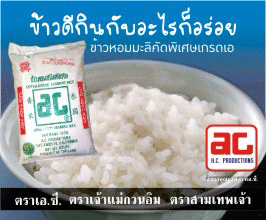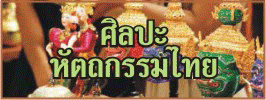บทที่ ๓๐ ใช้คำให้ถูก (ต่อ)
คำสับสนอาทิตย์นี้มีดังนี้
MANY VS. MUCH
· ทั้งสองคำมีความหมายเดียวกันคือ “มาก” แต่ใช้ต่างกันดังนี้
· Many ใช้กับคำนามพหูจน์นับได้ เช่น
I used to go to many concerts when I was in California.
ผมเคยไปดูชมคอนเสิร์ตบ่อยๆที่แคลิฟอร์เนีย
I have been to San Francisco many times in the past.
ผมไปซานฟารนซิสโกหลายครั้งในอดีต
· Many a ใช้ร่วมกับ a ทำให้ต้องใช้กับคำนามเอกพจน์ และถือเป็นเอกพจน์ ใช้ในภาษาเขียนมากกว่าในภาษาพูด เช่น
Many a tear has to fall, but it’s all in the game.
น้ำตาต้องรินหลั่ง แต่มันเป็นเพียงการเล่นเกม
· Much ใช้กับคำนามนับไม่ได้เอกพจน์ เช่น
They have so much money that they won’t be able to use it all.
เขามีเงินมากจนกระทั่งเขาไม่มีวันใช้หมด
MOVIE VS. MOVIES
· Movie หมายถึง “ภาพยนตร์” (a motion-picture film) เช่น
I feel like seeing a movie tonight. ผมอยากดูหนังคืนนี้
Did you enjoy the movie we saw yesterday? คุณชอบหนังที่เราดูเมื่อวานนี้หรือไม่
· Movies หมายถึง “โรงภาพยนตร์” หรือ “อุตสาหกรรมภาพยนตร์” (the motion-picture industry)
I was at the movies when you called me last night.
ฉันอยู่ที่โรงหนังตอนที่เธอโทรมาเมื่อคืน
MUST VS. HAVE TO VS. HAVE GOT TO
· Must, Have (Has) to, Have (Has) got to หมายถึง “ต้อง” ใช้กับกาลปัจจุบัน หรือ อนาคต
· Have (Has) got to ใช้ในภาษาพูด หรือ สนทนา
· Had to ใช้แสดงกาลอดีต
· Will have to ใช้แสดงกาลอนาคต เช่น
We must obey the law. เราต้องเคารพกฎหมาย
We have to be kind to animals. เราต้องมีความเมตตาต่อสัตว์
We had to work late last night. เราต้องทำงานจนดึกเมื่อคืนก่อน
I will have to wake up early tomorrow. ฉันต้องตื่นแต่เช้าพรุ่งนี้
อ่านต่ออาทิตย์หน้า


































